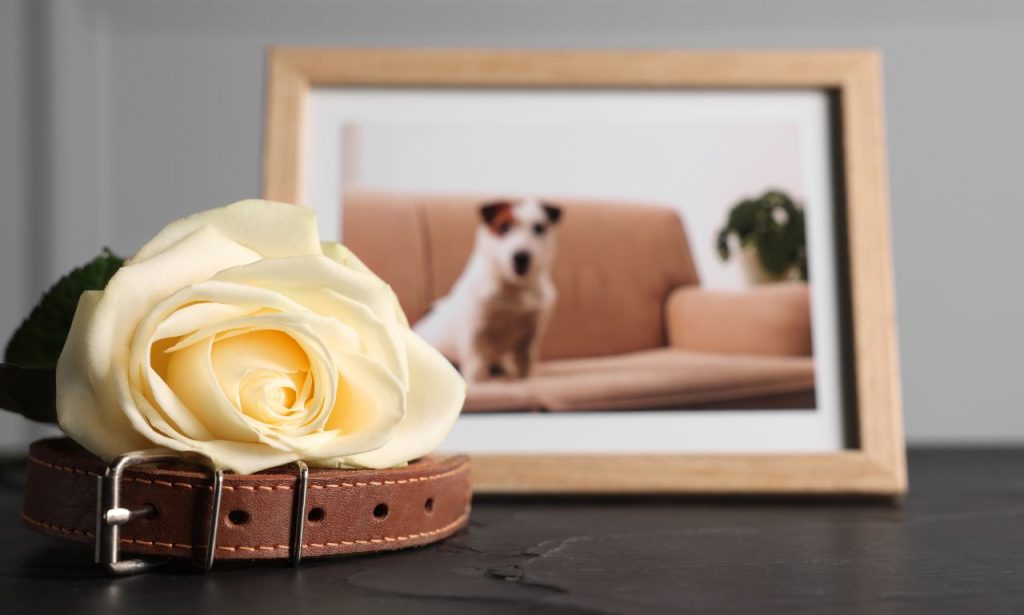Losing a pet suddenly is one of the most heart-wrenching experiences you can face. Pets are more than just animals; they are family members who provide unconditional love, companionship, and joy. The sudden loss can leave you feeling devastated and at a loss for how to cope with the intense emotions. This article aims to guide you through the process of coping with the sudden death of a pet, offering practical advice, emotional support, and creative ways to honor their memory.
The 5 Stages of Grief
Understanding the emotional rollercoaster you are on can be incredibly helpful. The five stages of grief are a framework that describes the range of emotions people typically go through after a loss:
- Denial: Initially, you might find it hard to believe that your pet is gone. This stage serves as a defense mechanism to numb the shock.
- Anger: As the reality sinks in, you may feel anger. This anger can be directed towards yourself, others, or even your pet for leaving you.
- Bargaining: You might find yourself making deals with a higher power, wishing for things to be different, or replaying “what if” scenarios in your mind.
- Depression: This stage involves a deep sense of sadness and emptiness. It’s a natural part of the grieving process.
- Acceptance: Finally, acceptance comes with understanding that your pet is gone, and you begin to find ways to move forward.
Ways to Get Through Pet Loss for Yourself and Others
Grieving the loss of a pet is a personal journey, but there are ways to make the process more bearable for yourself and others who are also mourning.
Pet Loss Support
Seeking support can make a significant difference in how you cope with losing a pet suddenly.
- Support Groups: Join a local or online pet loss support group where you can share your feelings with people who understand what you’re going through.
- Therapy: Consider seeing a therapist who specializes in pet loss to help you navigate your emotions.
- Books and Resources: There are numerous books and resources available that offer guidance on coping with pet loss.
Opening Your Heart Again After Pet Loss
Opening your heart to another pet might seem impossible right now, but it can be a healing step.
- Timing: There is no right or wrong time to get a new pet. Listen to your heart and take your time.
- Adopting: Consider adopting a pet from a shelter, giving another animal a loving home can be a wonderful tribute to your lost pet.
- Fostering: If adopting feels too permanent, fostering can be a way to provide care and companionship without a long-term commitment.
Pet Memorial Portrait Ideas

Creating a memorial for your pet can be a therapeutic way to honor their memory.
- Portraits: Commission a custom portrait of your pet. This can be a beautiful reminder of the joy they brought into your life.
- Photo Albums: Create a photo album or scrapbook filled with pictures and memories of your pet.
- Jewelry: Consider a piece of jewelry that incorporates your pet’s ashes or fur, allowing you to keep them close to your heart.
Coping with the Sudden Loss of a Pet
Acknowledge Your Grief
The first step in coping with the sudden loss of a pet is to acknowledge your grief. Don’t suppress your feelings or pretend that everything is fine. Allow yourself to feel the pain and sorrow. Grieving is a natural process, and it’s essential to give yourself permission to mourn.
Say Goodbye
Saying goodbye to your pet can provide closure. This can be done through a small ceremony or simply by spending time reflecting on your memories together. Writing a letter to your pet or creating a tribute video can also be meaningful ways to say farewell.
Create a Memorial
Creating a memorial for your pet can be a tangible way to remember them. This could be as simple as a dedicated space in your home with their photos and favorite toys or something more elaborate like a garden memorial. Planting a tree or flowers in their memory can be a living tribute that grows over time.
Distract Yourself
While it’s important to grieve, it’s also helpful to find distractions. Engage in activities that you enjoy or that can occupy your mind. Exercise, hobbies, and spending time with loved ones can provide relief from the intensity of your emotions.
What Is Pet Loss Syndrome?
Pet loss syndrome is a term used to describe the profound emotional and psychological impact that the death of a pet can have on an individual. Just as with the loss of a human loved one, the death of a pet can trigger intense grief and a range of emotional responses, often referred to as pet loss syndrome. This syndrome encompasses various symptoms, including:
- Deep Sadness: Persistent feelings of sadness and crying.
- Guilt: Feeling responsible for the pet’s death or questioning if more could have been done.
- Anger: Directed towards oneself, others, or the situation.
- Depression: A prolonged sense of emptiness, hopelessness, or lack of interest in daily activities.
- Anxiety: Increased anxiety, especially in situations that remind you of your pet.
How Long Does Grief Last After Losing a Pet?
The duration of grief after losing a pet varies widely among individuals and depends on several factors, including the nature of the relationship with the pet, the circumstances of the pet’s death, and the person’s overall emotional resilience. There is no set timeline for grief, but it often follows a pattern similar to the stages of grief:
- Acute Grief (Weeks to Months): Immediately following the loss, you may experience intense emotions, such as shock, denial, and profound sadness. This period can last from a few weeks to several months.
- Adjustment Period (Months to a Year): As time goes on, the intensity of the grief may lessen, but feelings of sadness and loss can still surface, especially on anniversaries or in situations that remind you of your pet.
- Long-term Grief (Years): For some, the sense of loss never fully disappears but becomes a part of their life story. Over years, the grief may resurface occasionally but generally becomes more manageable.
Why Is Pet Loss So Hard?

The difficulty of pet loss can be attributed to several factors:
- Unconditional Love and Companionship: Pets offer unconditional love and companionship, often becoming integral parts of daily life. Their loss can leave a significant emotional void.
- Routine and Structure: Pets provide routine and structure to their owners’ lives. Their absence can disrupt daily activities and create a sense of emptiness.
- Emotional Support: Pets often serve as emotional support, helping their owners cope with stress, anxiety, and loneliness. Losing this source of comfort can be particularly challenging.
- Lack of Social Recognition: Society may not always recognize the depth of the bond between humans and pets, leading to a lack of support and understanding during the grieving process.
- Memories and Shared Experiences: Pets are often present during significant life events and milestones, creating lasting memories. Their loss can feel like losing a part of one’s history and identity.
Conclusion
Coping with the sudden loss of a pet is a deeply personal and challenging experience. By acknowledging your grief, seeking support, and finding ways to memorialize your pet, you can begin to heal. Remember, it’s okay to feel a wide range of emotions and take your time through the grieving process.
ALSO READ: What Are the 12 Executive Functioning Skills?
FAQs
Helping a child cope with the loss of a pet involves open communication, allowing them to express their feelings, and providing comfort and reassurance. Books about pet loss can also be helpful tools.
Feeling guilty is a common part of the grieving process. It’s essential to recognize that you did your best for your pet and that their sudden loss is not your fault.
There is no set timeline for grieving. Everyone processes loss differently, and it’s important to allow yourself the time you need to heal.
Absolutely. Holding a funeral or memorial service for your pet can provide closure and allow you to honor their memory in a meaningful way.
There are many ways to remember your pet, including creating a photo album, commissioning a portrait, making a donation in their name, or planting a tree in their memory.



